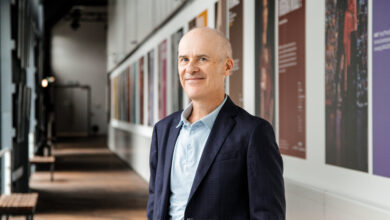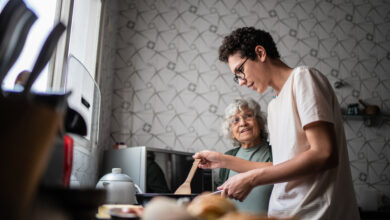What the ministers said at IDC24

Almost 1000 participants converged on Sydney last week to hear from trailblazing researchers, advocates, tech developers and those with lived experience, at the biannual International Dementia Conference 2024.
The two day forum featured more than 90 keynote speakers and panellists, discussing best practice in dementia care, palliative care and positive ageing.
This year's theme was In the Arena.
Amongst the latest social-isolation combatting technology, advances in architectural aged care design, advances in training and resources for the workforce and in-depth discussions on medical, legal and political reform one thing remained central in the IDC arena and that was person-centred care.
The diversification of available aged care services, enhanced training and support for aged care workers, greater awareness and education for the general public to change perceptions, breakdown stigma and facilitate earlier diagnosis will allow people to age in the "right" place, instead of the only available place.
There was a recognition amongst speakers and attendees alike that traditional one-size fits all models of aged care will not serve Australia's aging population going forward. Instead, the maintenance of individuality, autonomy, choice, culture and empowerment must be the yardstick by which every aged care decision is measured.
Angela Raguz, general manager of The Dementia Centre, said dementia care is something that will affect us all within our lifetime and it is important to elevate the voices of those working to improve quality of life for those with the disease.
“It’s a complex and difficult field and at IDC24 we want to give a platform to those who dare to try to make conditions better,” said Ms Raguz.
“That covers an enormous range of endeavours, not just the aged-care and healthcare professions and medical and behavioural research.
“There are dementia advocates, emergency first responders, accommodation and systems designers, legal and ethics advisors and, of course, family carers who perceive very closely how the needs of loved ones could be better met.”
Minister for Aged Care Anika Wells was first to approach the lectern on day one, delivering an update on governmental policy and action, and reflecting on her own journey within the sector.
"At the moment there are 400,000 Australians living with dementia. Two thirds of these people are women. And unlike most of us when they go to hospital, they are often kept there for up to five times as long," Minister Wells said.
"I think we can all be playing amongst friends here. That is not good enough and we know that.
"The Royal Commission found that people living with dementia and their carers needed better access to information and advice, better access to support services ranging from the time of diagnosis through palliative care, and a better trained workforce.
"So improving the lives and care of people living with dementia, whether that be in the community, through the health system or aged care services, is the driving force behind our work to create a new National Dementia Action Plan."
In addressing the issue of the delays with Aged Care Taskforce reform the Minister said the Labor government is confident and hopeful that the opposition will provide bipartisanship support "very soon."
"We have had months of discussions. We are very close to an agreement that I know all of you understand is vital for older Australians, and it's vital that that be bipartisan because you as a sector cannot have the rules change when the government does.
"The Albanese government is absolutely committed to bringing aged care back from the brink. When I became the Aged Care Minister and I walked back into nursing homes 18 years after having worked there myself, I was struck by how too few things had changed, and that's what has really given me the ballast to try and take on those really hard long-term challenges.
"I sincerely believe that the Shadow Minister [Senator Ruston] earnestly wants to see aged care improved and reformed in this country as well. It really has been a remarkable bipartisanship or bipartisan effort across the course of this year to get to the point that Taskforce reform is at."

On day two, Shadow Minister for Health and Aged Care Senator Anne Ruston took the opportunity to call out the Albanese government's "episodic approach" to aged care policy and reform, urging the audience to instead see ageing and the provision of care as a journey.
"Unquestionably times are changing and as we look towards the future and how best to deliver care, we need to consider some things that I think we perhaps haven't considered before," Senator Ruston said.
"How do we plan to deliver for a sector that focuses on reablement right through to our final years of life? One that recognises the expectations of older Australians are going to be significantly different into the future than the generations that have had care in the past. One that recognises that dementia and palliative care are going to be the norm in nursing homes and not the exception."
"It's quite clear that dementia is going to continue to be one of the most pressing issues that we are going to need to address when we're caring for older Australians. But we also need to recognise that we need to accelerate funding, but we also need to be very careful and clever and targeted about what that funding is going to go to because we need to make sure that when innovations and treatments are discovered and found that it resolves in Australians being able to get access to them."
Email: [email protected]





